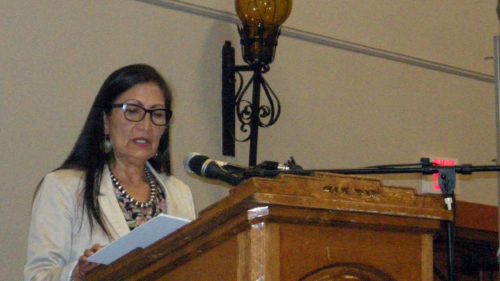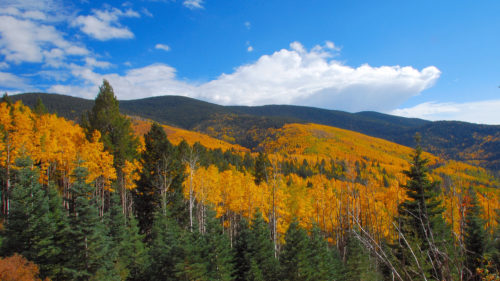March 8, 2018
ALBUQUERQUE: Climate change is a direct threat to the livelihood of many New Mexicans, and this threat is clearly growing as our state endured some of the warmest fall temperatures on record this year. Now more than ever, our communities, treasured landscapes, and economy depend on the implementation of climate smart federal policies. Today, we applaud the introduction of one such policy by Senator Tom Udall.
Introduced by Rep. Peter Welch (D-Vermont) in the House, the Growing Renewable Energy through Existing and New Environmentally Responsible Fuels Act (S.2519 and H.R. 5212)–known as the GREENER Fuels Act–seeks to reform the 2007 Renewable Fuel Standard, which has led to a host of unintended consequences, from destruction of habitat to contribution to climate-disrupting pollution.
The Renewable Fuel Standard is a federal program that mandates gasoline include a minimum amount of alternative fuels–most prominently those derived from corn ethanol. The goal of the program — which increases the volume of renewable fuels each year — is to move away from petroleum-derived gasoline. Unfortunately, the mandate has never lived up to its intentions.
The GREENER Fuels Act provides long-overdue reforms to the Renewable Fuel Standard, including:
- Winding down the corn ethanol mandate. Beginning in 2023, the bill steps down the amount of ethanol in the nation’s fuel supply
- Funding to reverse damage to native prairie habitat from cropland conversion by investing more than $10 billion over 10 years to habitat restoration and conservation fund
- Protecting wildlife habitat by enforcing existing land protections that are supposed to prevent future land conversion
- Helping confront climate change by incentivizing advanced biofuels that lower climate disrupting pollution in our fuel supply.
“We thank Sen. Udall for introducing this bill and look forward to working with him to act with urgency to pass this bill in the U.S. House and Senate,” said Todd Leahy, Acting Executive Director, New Mexico Wildlife Federation. “These common-sense reforms work to protect wildlife and combat climate change, while also keeping us moving forward on our clean fuel goals the right way. We have solutions. It’s time to use them.”
The Renewable Fuel Standard has also failed to live up to its mission of combating climate change. In fact, widespread cropland conversion in the years immediately following the program’s enactment produced climate-disrupting pollution equivalent to 20 million additional cars on the road each year.
“Our nation’s prairies have been hit hardest by cropland conversion. This includes the prairie pothole region–known as ‘America’s Duck Factory,’” said Sophie Shemas, Public Lands Fellow with the New Mexico Wildlife Federation. “ The GREENER Fuels Act takes a critical step in reversing this destruction, establishing a fund to help restore and protect prairie habitat so that wildlife and outdoors experiences can be enjoyed by people now and generations to come.”
The New Mexico Wildlife Federation encourages the sportsmen and women of New Mexico in joining us to support this measure aimed at improving our renewable fuel future.
###



